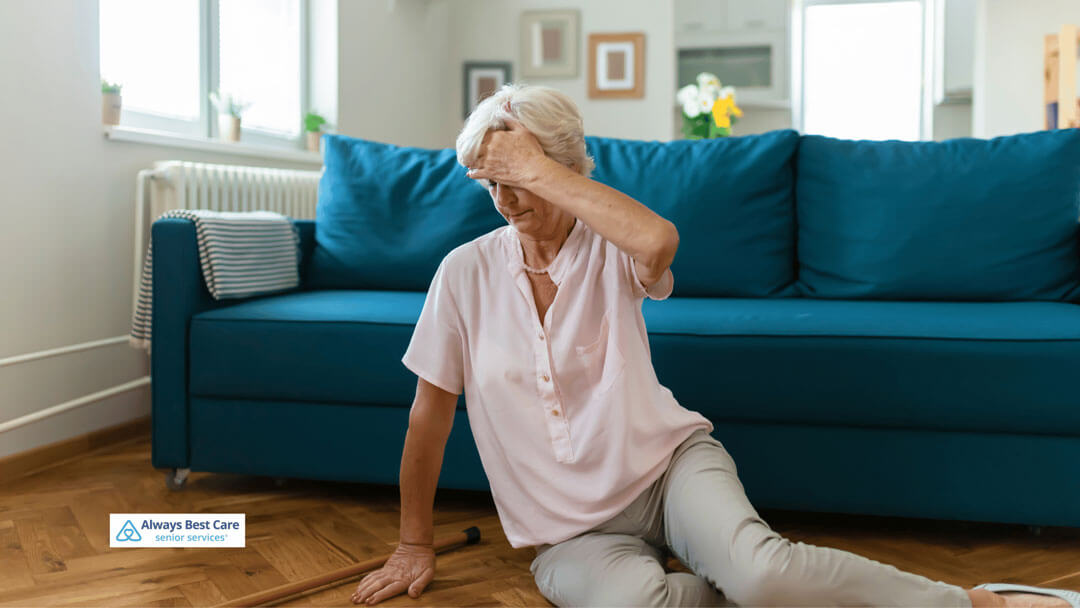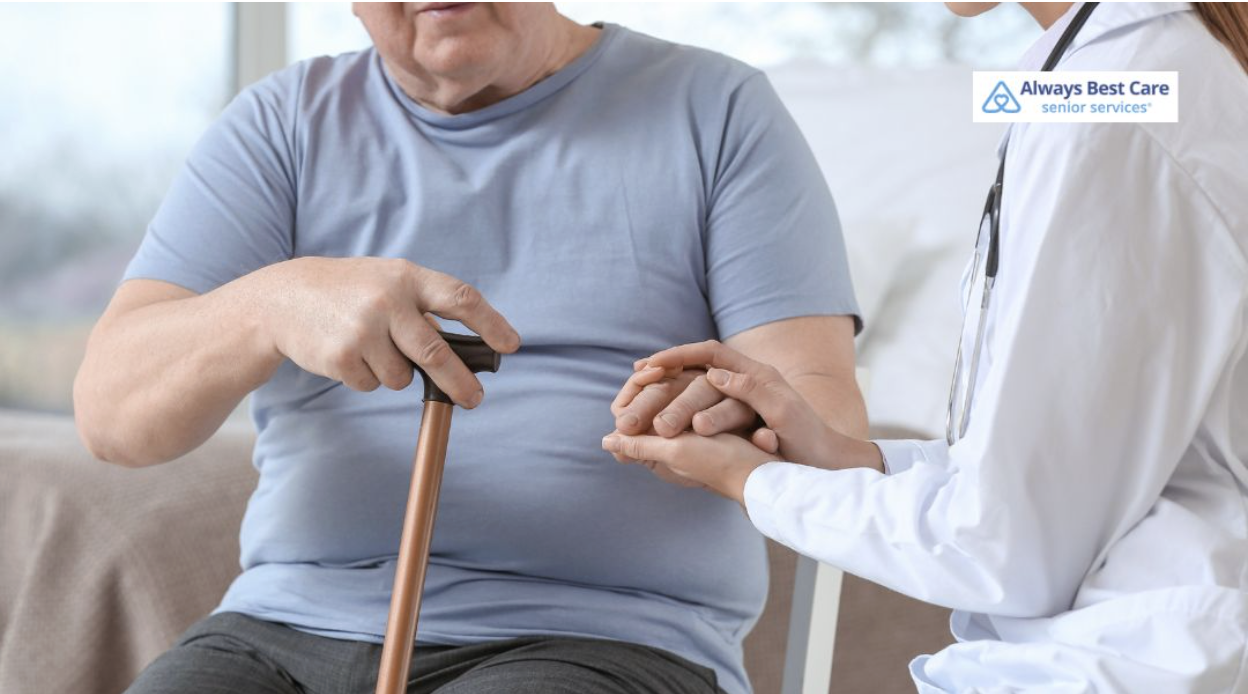9 Commonly Overlooked Fall Risks for Seniors

As we age, balance and mobility become more challenging, making seniors more vulnerable to falls.
Many common fall risks often go unnoticed, which can lead to injuries that could have been prevented. Being aware of these hazards and taking steps to reduce them can help seniors maintain their independence and stay safe at home.
Here are nine fall risks that might be slipping under the radar.
Table of Contents
What Are Common Fall Hazards?
Fall hazards refer to potential obstacles or environmental factors that increase the likelihood of a senior falling. They can be as simple as a misplaced rug or as serious as inadequate lighting or medication side effects.
Seniors are particularly susceptible to falls due to age-related issues like declining vision, balance problems, or reduced strength. Identifying these hazards before they lead to accidents is crucial for maintaining a safe and secure living environment for seniors at home.
1. Slippery Floors and Bathrooms
Bathrooms pose a significant risk for seniors because wet, slippery floors can lead to serious falls. Water from the shower, sink, or toilet can create slick surfaces that are difficult to navigate, especially for seniors with mobility issues.
Installing non-slip mats in the bathroom and near sinks, as well as adding grab bars near the toilet and shower, provides additional stability. These simple adjustments can make bathrooms much safer for seniors and help prevent devastating accidents.
2. Poor Lighting
Inadequate lighting is another common fall hazard that can easily be overlooked. Dim or poorly lit areas in the home, such as hallways, staircases, and bedrooms, can make it difficult for seniors to see obstacles, leading to trips and falls.
Installing brighter light bulbs and adding motion-sensor nightlights in key areas of the home can significantly reduce this risk. Proper lighting is a crucial factor in helping seniors stay safe, especially when moving around at night.
3. Cluttered Walkways
A cluttered home can be a major fall risk for seniors. Loose objects like shoes, books, or small furniture obstructing walkways can become serious tripping hazards. Seniors may have difficulty navigating through narrow, crowded spaces, especially if their mobility is limited.
Keeping the home organized and free of unnecessary clutter is key to preventing accidents. It’s important to regularly assess high-traffic areas to ensure that walkways are clear and accessible for seniors.
4. Loose Carpeting and Rugs
Loose rugs or carpets can quickly become dangerous for seniors if they aren’t properly secured. Rugs that slide or bunch up when walked on can cause seniors to lose their balance and fall.
Using non-slip backing under rugs or, in some cases, removing loose rugs entirely from the home can reduce the risk of slipping. For seniors who rely on canes or walkers, stable, secure flooring is significant to maintain their safety and stability.
5. Improper Footwear
Footwear that lacks proper support or traction can significantly increase a senior’s chances of falling. Shoes with soft soles or no grip can be hazardous, making slipping on smooth or wet surfaces easy.
Seniors should wear shoes with sturdy, non-slip soles to ensure better balance. Avoiding loose-fitting slippers or shoes without a proper heel can also make a big difference in their ability to walk safely on different types of flooring.
6. Unstable Furniture
Using unstable furniture as support can be a hidden fall hazard for seniors. Many seniors rely on tables, chairs, or other furniture to steady themselves while moving around. Still, if that furniture is wobbly or poorly positioned, it can cause them to lose balance and fall.
Ensuring that all furniture is securely placed and stable prevents accidents. Checking for loose screws, broken legs, or unstable surfaces can help reduce these risks significantly.
7. Medication Side Effects
Medications that cause dizziness, drowsiness, or affect balance can significantly increase a senior’s risk of falling. Many seniors take multiple medications, and the side effects can sometimes lead to decreased stability or confusion.
It’s essential to regularly review medications with a healthcare provider to ensure they are not contributing to fall risks. Monitoring these side effects can help caregivers and family members identify when adjustments or extra precautions may be needed to keep seniors safe.
8. Lack of Handrails
The absence of handrails on stairs or in other high-traffic areas like hallways and bathrooms can make it much harder for seniors to maintain their balance. Handrails provide vital support for seniors, helping them stabilize themselves as they move through the home.
Installing handrails on all staircases and other vital areas can dramatically reduce the risk of falls. Having a reliable surface to hold on to is particularly important for seniors with limited mobility or balance issues.
9. Outdoor Obstacles
Outdoor fall risks are often overlooked, but uneven sidewalks, wet leaves, or poorly maintained pathways can be just as dangerous as indoor hazards. For seniors who enjoy spending time outside, these obstacles can be difficult to navigate safely.
Encouraging seniors to wear proper footwear outdoors, such as shoes with good traction, and regularly clearing pathways of debris can help prevent accidents. Keeping outdoor areas well-maintained is crucial for ensuring seniors can move around without fear of falling.
Additional Tips to Prevent Fall Hazards
Start by making sure walkways are clear and well-lit, with sturdy handrails and non-slip flooring where necessary.
Seniors should also wear supportive footwear and schedule regular eye exams to keep their vision sharp.
Discussing medications with a healthcare provider is another critical step in minimizing side effects like dizziness or drowsiness that could lead to falls.
How Always Best Care of Nashville Can Help
Always Best Care of Nashville offers comprehensive services to help seniors avoid fall risks at home.
Our in-home safety assessments identify potential hazards, providing tailored recommendations to reduce the risk of falls. From installing grab bars to creating personalized care plans, we focus on keeping seniors safe while preserving their independence. Whether your loved one needs assistance with daily activities or help improving their home’s safety, Always Best Care of Nashville can offer the support and resources they need!
Stay Safe with Always Best Care of Nashville!
If you’re looking to safeguard your loved one from fall risks, Always Best Care of Nashville is here to help. Our expert team provides personalized in-home safety assessments and support to ensure seniors can navigate their homes safely and confidently. Contact Always Best Care of Nashville at (615) 678-0293 to learn more and schedule your free consultation!





